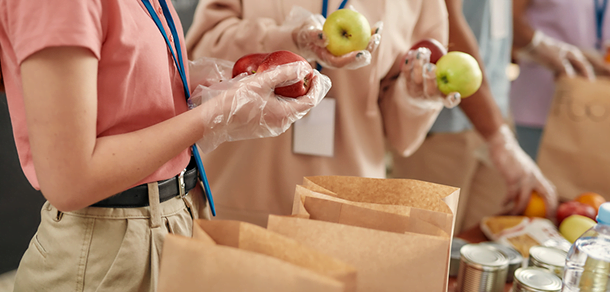
Food pantries served 10,000 during spring semester, mobile ordering, grab-and-go to help more in future
The Roadrunner food pantries, also known as the Whataburger Resource Rooms, offer free, nutritious food to the food-insecure among the University of Texas at San Antonio community. To date, more than 47,000 students have benefited, and more than 10,000 received help during the spring 2023 term.
According to a UTSA report, the pantries are stocked with foods, toiletries, and school supplies. The idea is to remove this major obstacle so students can focus on their education.
To save money, I limited myself to one meal per day before I discovered the pantry. Access to produce and milk significantly reduced my food insecurity concerns
“The pantries haven’t slowed down since they opened six years ago,” says Nikki Lee, senior associate director of the UTSA Student Union who supervises the Whataburger Resource Rooms. “We saw a tremendous spike during the pandemic, … and we continue to serve so many even beyond food.”
Lee says they have students who come once a week, every day, or only once because that’s all they need.
Any student, faculty or staff member with a valid UTSA ID can take advantage of the service. Pantries are like mini grocery stores with items like milk, bread, fresh fruit and non-perishables, shampoo, toilet paper, and deodorant.
A mobile ordering program will start this semester for curbside pickup and a grab-and-go program will help students access food as they go about their day, all free of charge.
Students who have benefited from the program frequently become volunteers in the pantries, stocking goods and managing operations.
Hemangi Ahir, a graduate student from Panama, benefited from the program and later volunteered as a graduate assistant at the Main Campus pantry.
“As an international student beginning my career in the United States, I faced numerous expenses, including rent and out-of-state fees,” Ahir says. “To save money, I limited myself to one meal per day before I discovered the pantry. Access to produce and milk allowed me to save on grocery expenses, which was truly a blessing, as it significantly reduced my food insecurity concerns."




